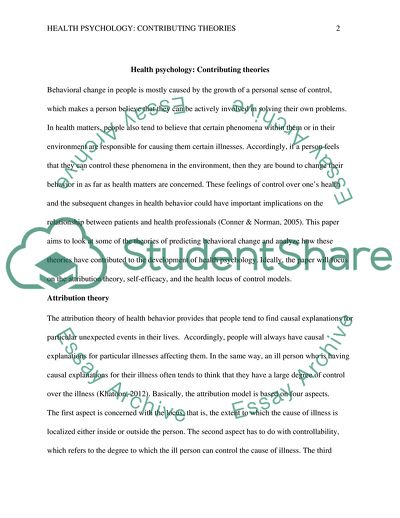Cite this document
(Theories Contributed into Health Psychology Essay, n.d.)
Theories Contributed into Health Psychology Essay. https://studentshare.org/psychology/1784147-to-what-extent-can-attribution-theory-self-efficacy-and-health-locus-of-control-predict-health-behavioural-change-critically-discuss-their-contribution-to-health-psychology
Theories Contributed into Health Psychology Essay. https://studentshare.org/psychology/1784147-to-what-extent-can-attribution-theory-self-efficacy-and-health-locus-of-control-predict-health-behavioural-change-critically-discuss-their-contribution-to-health-psychology
(Theories Contributed into Health Psychology Essay)
Theories Contributed into Health Psychology Essay. https://studentshare.org/psychology/1784147-to-what-extent-can-attribution-theory-self-efficacy-and-health-locus-of-control-predict-health-behavioural-change-critically-discuss-their-contribution-to-health-psychology.
Theories Contributed into Health Psychology Essay. https://studentshare.org/psychology/1784147-to-what-extent-can-attribution-theory-self-efficacy-and-health-locus-of-control-predict-health-behavioural-change-critically-discuss-their-contribution-to-health-psychology.
“Theories Contributed into Health Psychology Essay”. https://studentshare.org/psychology/1784147-to-what-extent-can-attribution-theory-self-efficacy-and-health-locus-of-control-predict-health-behavioural-change-critically-discuss-their-contribution-to-health-psychology.


